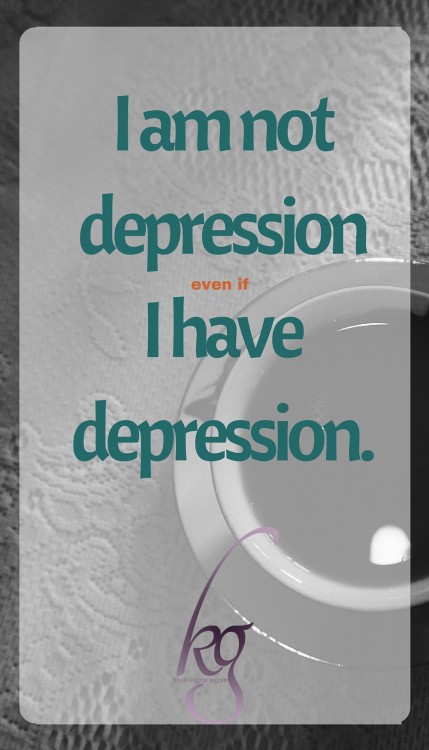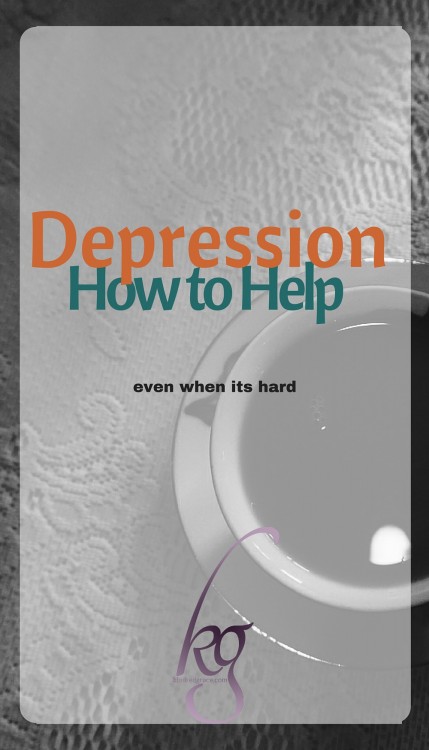Depression: How to Help
In a room of 45 ladies, we counted off 1 through 5 nine times and every fifth person stood up. I stood up. I stood up and looked around the room, marveling at the statistic that 20% of the women in that room have battled mental illness or are battling mental illness. I am that 20%. I am the statistic.
My battle with mental illness is a relatively mild story compared to many, but it’s my story. It has been a painful journey, it’s been tumultuous, victorious, overwhelming, beautiful. It’s my story and it’s the story that God is using to draw me closer to Him. Even when I am triumphantly flourishing, many, many light years away from the shell of Jennifer I was two years ago, I walk under the cloud of a label: Depression.
It’s a label that does not define me, it’s a label that may someday go away, it’s a label that is misapplied, misused, overused. It’s a label that scares me and scares my friends.
I am not depression.
I have depression.
(To put it in medical terms: you are not cancer, you have cancer. You are not diabetes, you have diabetes. )
Depression: words that hurt
Walking the journey of depression (or any other deeply painful time) was not only a personal journey, but a journey that affected everyone around me. Not only did I unintentionally inflict hurt to my unsuspecting friends and family during the height of my undiagnosed depression battle, but they unintentionally hurt me in their well-meaning effort to help me.
How did words hurt me? Friends and family over-spiritualized my challenges, undervalued the pain, overvalued my strength:
- Pray more, they said. Confess your sin, clear your conscience. That’s why you’re not able to get beyond the fog. Have you read the story of the blind man in John 9? I love it. “It was neither that this man sinned, nor his parents; but it was so that the works of God might be displayed in him.”
- Read your Bible more, they said. You just need to remember the Truths in Scripture so that you can fight the untruths the Devil is feeding you. Yes, I did. Yes, that would be helpful. But I couldn’t hear that in the intensity of my fog. Telling me the Bible would solve my mental illness felt like someone saying, “Hey, go read the Psalms and that’ll help your cancer.” Scripture will strengthen and sustain, yes. But hearing that? Made me feel like a failure of a Christian, a failure of a human, added to my already spiraling funnel of guilt and confusion.
- You’re strong enough to handle this, they said. As if I didn’t feel weak already, being told I should be strong enough to combat the challenge made me feel even more of a debilitating failure.
- You have so much to be thankful for! Why are you having such a hard time seeing that? Sakes alive, this one hurt the most. I remember exactly who said it, exactly where I was when I first heard it, and the reeling, rolling agony of being told that my painful struggle wasn’t legitimate. Yes, I do have much to be thankful for and even at the height of my depression, I could see that! But seeing my privileges only proved to heighten my guilt for not being able to live in victorious joy.
My journey into situational depression started when I got married, moved to a new country, moved into two new sub-cultures, was unable to work during the immigration process, and exchanged all things comfortable for all things new. At the height of the pain when I was finally willing to accept help, I had to answer to the extreme affirmative all the questions on the doctor’s initial assessment.
Depression: words that help
The gentle friends who were the most helpful during my journey into and through and out of depression were the ones who affirmed, encouraged, remembered me. The most powerful encouragement I received wasn’t in a glib word or quick comment. Instead, the deepest help came from friends who acted in faithful friendship.
- You’re valuable. I had people just walk alongside me. Never asking questions, never posing solutions. Just doing life with me. Just being a friend. Guys: the best thing you can do for someone who is hurting is be a friend. Don’t be their counselor, don’t be the angel on their shoulder, don’t be their rescuer. Just be their friend.
- I care about you. The most faithful of friends called me even when I didn’t answer, texted me when there was no response, came to visit even when I couldn’t talk. I had one gal who would invite me to several events before I would muster the emotional stamina to attend one. But I knew she’d keep inviting and I knew she wouldn’t forget me when I couldn’t make it out of the house. I knew I didn’t have to feel guilty when I canceled many times on our plans.
- I am going to keep helping you in my actions. Not by “fixing” a problem, not by “solving” my pain or burdening me with guilt. Helping a hurting, depressed friend is just praying with her, bringing her a pot of flowers “just because”, taking her out for coffee. Just being a friend? It’s the best thing you can do.
- I didn’t go for medical help until I was ready. Unfortunately, that is quite common: NAMI suggests that “in any given year, only 60% of people with a mental illness get mental health care.” If someone had pestered or nagged me to go for help, I would’ve shut them out of my life. I did, however, listen to the friends who first proved their faithfulness and who prayerfully waited for the right time to suggest medical attention.
A friend of the broken is to be the most selfless, sacrificial friend of all. A friend who is the most help to the emotionally depleted me is a friend who puts up with my nonsense, loves despite all the emotional games, and makes sure that I need never feel forgotten. She never forced me to a certain conclusion, didn’t probe to know everything, and simply walked beside me.
Only when I finally accepted that depression does not define me, that it can be treated, and that I should not be guilty for accepting a label, I was able to start the journey to wholeness and healing.
Depression: further resources
Satan’s Hidden Arsenal Against Women
Souls in the Hands of a Tender God by Craig Rennebohm
How Do I Help a Hurting Friend? by Rod J.K. Wilson
Best Things to Say to Someone Who is Depressed
Best Things to Say to Someone Who is Depressed
Please Note: Depression at its extreme can lead to suicidal thoughts or actions. If your friend is talking about suicide or admits to suicidal thoughts, they need professional help. In the USA, the Suicide Prevention Hotline is available 24/7 at 1-800-273-TALK. NAMI provides a list of warning signs to watch for in your friend.




Thank you for shedding light, Jennifer. Because of you, we are more well-informed and equipped to be gentle and helpful rather than hurtful. <3
Yes and amen…thanks for this